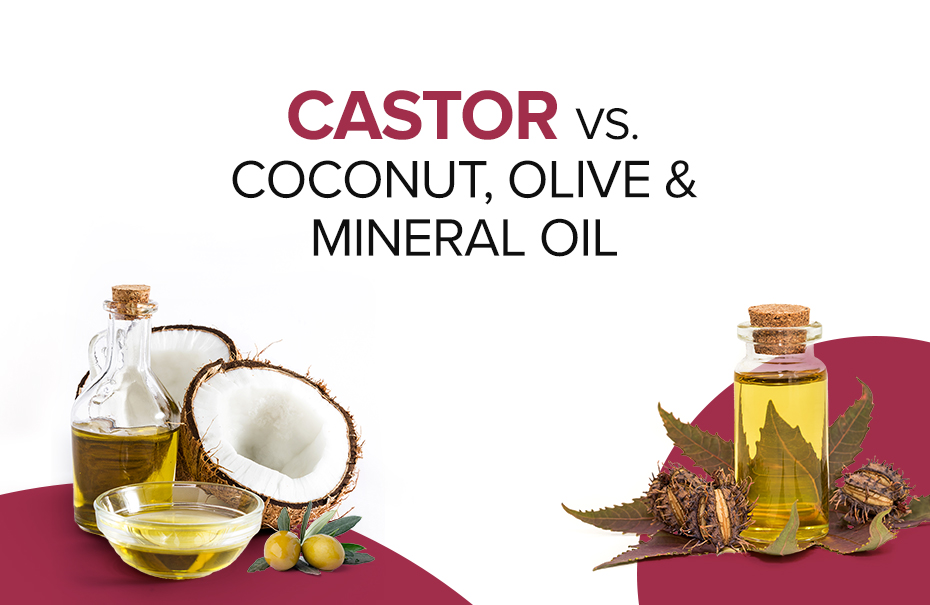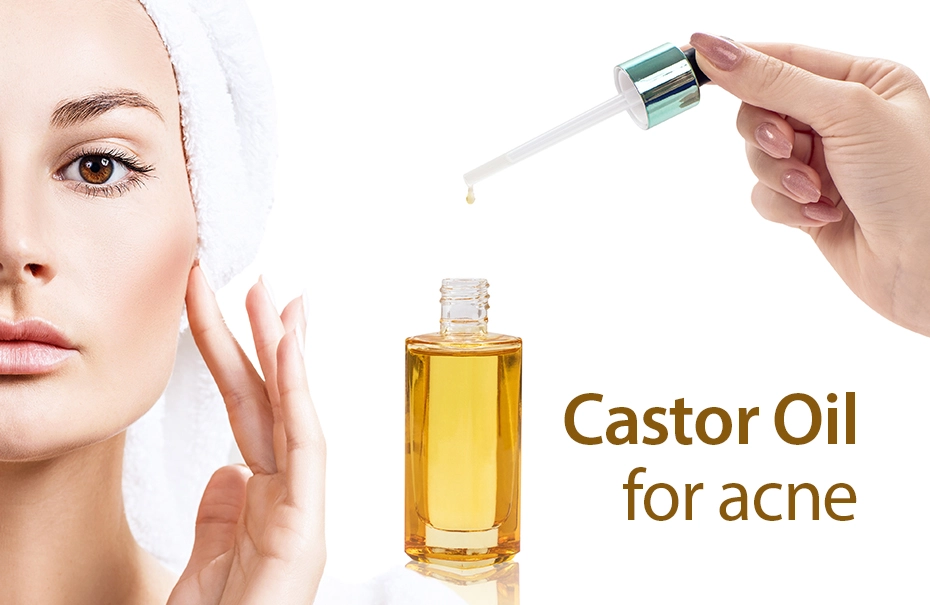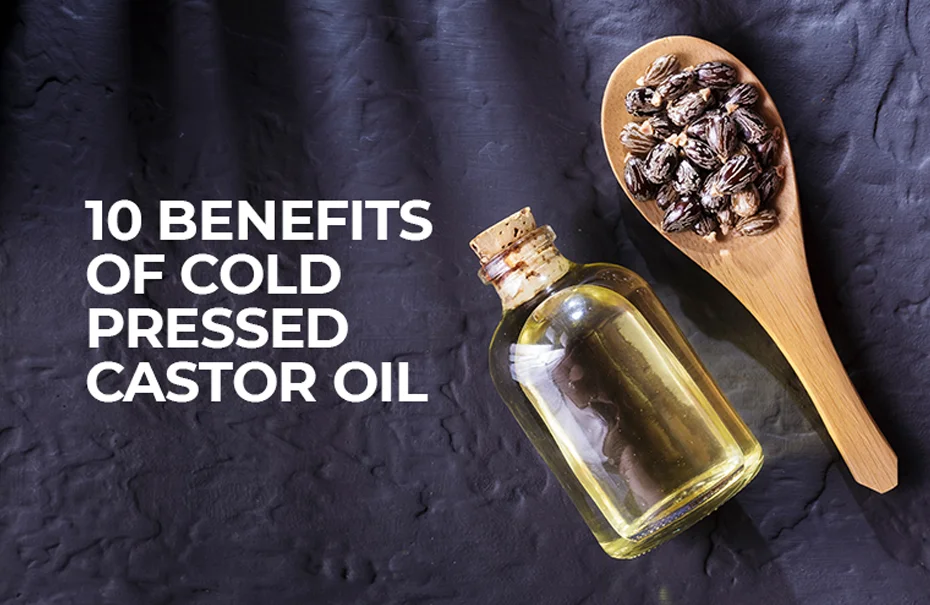Castor vs. Coconut, Olive and Mineral Oil

Today, customers are more aware and conscious of sustainable and eco-friendly products that don’t have any effect on the body or the environment. Consumers prefer natural and organic ingredient-based beauty or cosmetic products. Given this increase in consumer demand for sustainable products, it is vital to seek out oil and other bio-based solutions for production that satisfy consumer requirements.
Natural oils are the most suitable option for cosmetics and beauty product manufacturers due to their easy availability, affordability, and sustainability. The oils that are found in many personal care products include castor oil, coconut oil, olive oil, and mineral oil. Each oil has unique characteristics and specific properties that make it ideal for particular products. If you integrate organic castor oil into your products, it might be good to measure how well it performs in them.
Coconut vs. Castor Oil
Castor oil and coconut oil are the most used natural oils across the globe. Coconut oil is derived from coconut meat, while castor oil is obtained from the cold pressing of castor beans. Both oils have their significance and use. Let’s study their usage and exemptions in detail.
1. Coconut Oil:
In many countries, coconut oil is used for cooking. Also, people often include coconut oil in their food plans, like ketogenic and paleo diets, rather than other oils. It has a subtle flavour and a slight scent of coconut that gives different types of dishes a characteristic taste.
On the other hand, castor oil is indigestible. Consumption of castor oil would be harmful as it contains a large quantity of ricinoleic acid. Ricinoleic acid is a fatty acid; hence, it is highly toxic as well as having powerful laxative effects. Despite the fact that the Food and Drug Administration’s (FDA) natural castor oil is used as a food flavouring agent, it’s still unsafe to ingest it in large amounts.
2. Castor Oil:
Generally, it is recommended not to use coconut oil on hair. However, pure castor oil has anti-inflammatory properties that help in the promotion of scalp and hair growth and other health benefits. The possibility of nourishing hair or the skull may also result in improved hair as well as eyelash growth. Besides, you may apply it for your hair’s conditioning, prevention, or management of dandruff while at the same time increasing its natural glow.
3. Both Coconut & Castor Oils:
Natural castor oil and coconut oil have been used for centuries as moisturisers. Recent scientific studies have confirmed their effectiveness in enhancing the skin’s moisture barrier. Virgin coconut oil, in particular, has been found to have anti-inflammatory properties and can be used to treat skin infections and as an effective moisturiser.
Also Read: Castor Oil vs. Coconut Oil: Benefits & Best Uses Compared
Castor Oil vs. Olive Oil
Olive oil is another sustainable, natural, and non-toxic natural oil. Olive oil is derived from olive seeds, and it is used for various purposes. It has certain advantages and drawbacks. Let’s check out the difference between castor and olive oil.
1. Olive oil is versatile in cooking
Olive oil is the most preferred cooking oil among customers. Chefs or cooks can replace other castor oil with olive oil, knowing that it won’t impact the taste of your dish. Olive oil is one of the oils that is naturally flavorful and healthy. It contains antioxidants and monosaturated fats, which help improve heart condition as well as reduce inflammation.
2. Castor Oil for Skincare
The higher density of olive oil makes it hard to absorb into the skin. The direct use of olive oil can clog the pores and cause acne. While pure castor oil has anti-microbial properties, making it suitable for treating acne,.
Castor oil also helps in reducing swelling due to under-eye bags or acne. For this reason, ricinoleic acid can prevent the bacteria that results in acne from replicating itself. Pure castor oil kills bacteria and is good for making the skin beautiful; thus, it prevents dark spots.
3. Castor & Olive Oil: Excellent Ingredients for Skincare
Both castor oil and olive oil are used in personal and skincare products. Olive oil is good for the skin, not for acne. Castor oil has ricinoleic acid, which finds application in personal care products and is commonly used for moisturisers and conditioners.
Castor Oil vs. Mineral Oil
Mineral oil is another popular oil used in personal care products. However, sometimes products made from mineral oils can have adverse effects on health. Here are some key differences between minerals and castor oil that might help you determine their application and usage.
Mineral Oil
Mineral oil is not vegetable oil, unlike castor oil, which has its origins in castor beans. Mineral oil is acquired during the refining of crude oil. Consumers could question the sustainability of items made with mineral oil due to its production method.
Castor Oil
From personal to industrial, castor oil has a variety of uses. Castor oil can be used for the treatment of minor to major ailments and is said to have produced positive results in every case. It can be used to treat arthritis. headaches. menstrual cramps and minor wound healing.
Castor & Mineral Oil
Personal care and cosmetic industry products use castor oil and mineral oil. For example, castor and mineral oils are frequently used in:
- Dyes & Inks
- Hydraulics Media
- Lubricants For Engines
- Brake & Gearbox Fluids
Get the best castor oil from a trusted source
If you’re inspired and committed to taking your sustainability goals to a new level and contributing towards more eco-friendly production, Ambuja Solvex is the answer to all your needs. Ambuja Solvex is India’s largest producer and exporter of castor oil.



